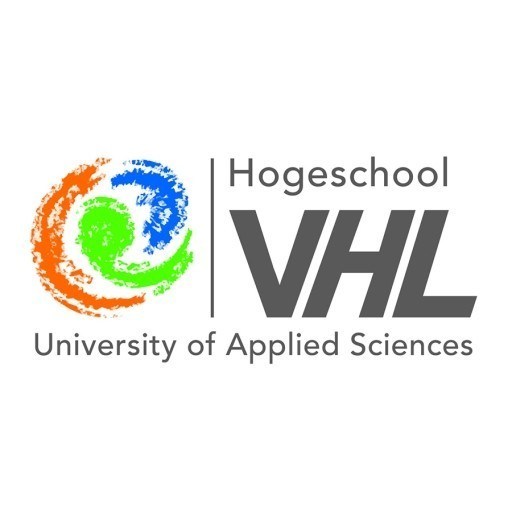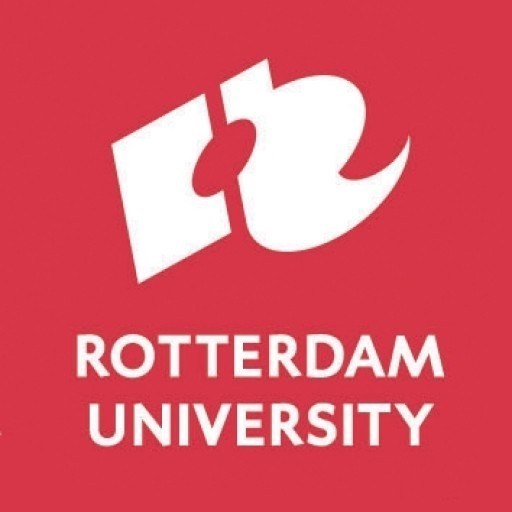Photos of university / #hogeschool_vhl
The Agricultural Production Chain Management — Livestock Chains program at VHL University of Applied Sciences is designed to equip students with comprehensive knowledge and practical skills to effectively manage and optimize the livestock supply chain. This specialization focuses on the entire process, from animal breeding and farm management to processing, distribution, and retail, ensuring students understand each link and how to improve efficiency, sustainability, and profitability within the sector. The program covers a wide range of topics including animal nutrition, veterinary practices, farm management, supply chain logistics, quality control, and international trade regulations related to livestock products. Students will gain hands-on experience through internships with leading agricultural companies and engage in project-based learning to solve real-world challenges faced by the livestock industry. The curriculum emphasizes sustainable practices, animal welfare, food safety, and the utilization of innovative technologies such as data analytics, digital tracking systems, and automation to enhance productivity and transparency in the supply chain. Graduates of this program are prepared for careers in various sectors including farm management, logistics, quality assurance, and consultancy within the agricultural and livestock industries. The program’s international environment and collaboration with industry partners provide students with valuable networking opportunities and insights into global market trends. By completing this programme, students will develop a thorough understanding of the complexities of livestock chains and be capable of implementing solutions that promote sustainable and efficient livestock production and distribution systems.
The Agricultural Production Chain Management — Livestock Chains programme at VHL University of Applied Sciences offers a comprehensive and in-depth education designed to equip students with the knowledge and skills necessary to excel in the management of livestock supply chains. This programme focuses on the entire agricultural production process, emphasizing the interconnected stages involved in livestock farming, processing, logistics, and distribution. Students will explore topics such as animal husbandry, sustainable farming practices, quality control, supply chain logistics, and food safety regulations, ensuring they are prepared to meet the challenges of modern livestock industries.
Throughout the programme, students will gain practical experience through internships, case studies, and project work that simulate real-world scenarios in livestock chain management. The curriculum covers essential areas such as farm management, feed and nutrition planning, livestock health and welfare, production planning, innovations in livestock technology, and the impact of global markets on local chain practices. Emphasis is also placed on sustainability and environmentally friendly practices, aligning with the growing importance of responsible farming and food production.
Students will develop crucial skills in supply chain analysis, process optimization, and data management, enabling them to identify inefficiencies and implement improvements in livestock production systems. The programme also addresses current challenges in the industry such as animal welfare standards, traceability requirements, and the integration of digital solutions to streamline operations. Graduates will be well-prepared to find employment in various roles within the livestock production sector, including supply chain coordinator, quality assurance manager, farm manager, or consultancy expert.
The VHL University of Applied Sciences ensures that the programme combines theoretical knowledge with practical application, fostering a proactive and analytical mindset among students. By the end of their studies, graduates will be capable of managing complex livestock chains efficiently, contributing to sustainable and responsible agricultural practices worldwide. This programme is ideal for individuals passionate about agriculture, logistics, and animal care, seeking to make a significant impact in the livestock industry.
Admission requirements
Bachelor degree or equivalent in Agriculture, Biology or related subject.
Other requirements
- vooropleiding (ISPAC: vereiste vooropleiding) Bachelor degree or equivalent in Agriculture, Biology or related subject.
- werkervaring (ISPAC: vereiste werkervaring) At least 2 years of relevant working experience in the agricultural/agribusiness sector.
The Agricultural Production Chain Management — Livestock Chains program at VHL University of Applied Sciences offers a variety of financing options to support students throughout their studies. Tuition fees are established annually and are published on the university's official website, providing transparency and clarity for prospective students. International students can benefit from several scholarship programs, including merit-based scholarships awarded based on academic performance, as well as need-based financial aid schemes designed to assist students from diverse economic backgrounds. Additionally, VHL University of Applied Sciences participates in European funding initiatives, which may cover part of the tuition costs for eligible students. Students are encouraged to explore external funding opportunities such as government grants, loans, and private scholarships available in their home countries or through international organizations. The university also offers flexible payment plans, allowing students to distribute their tuition payments across different semesters, thereby easing financial burden. Work-study arrangements are facilitated, with options for students to combine part-time employment with their academic commitments on or near campus, providing both financial support and practical experience in the field of agricultural production management. International students typically need to demonstrate sufficient financial means to obtain student visas, and the university provides guidance on the required documentation and procedures. Students are advised to start exploring funding options early, ideally during the application process, to ensure they can secure necessary financial aid in a timely manner. Overall, VHL University of Applied Sciences aims to make agricultural management education accessible by offering a comprehensive range of financing solutions tailored to meet the diverse needs of its student body.
The Bachelor's degree program in Agricultural Production Chain Management — Livestock Chains at VHL University of Applied Sciences is designed to prepare students for a career in the dynamic and vital sector of livestock supply chains. This program focuses on providing students with comprehensive knowledge and practical skills related to the management, optimization, and innovation within the livestock industry, emphasizing sustainable practices and modern technological applications. Students will explore various aspects of agricultural production, including animal husbandry, supply chain logistics, quality control, food safety, and market analysis. The program aims to develop competencies in planning, organizing, and managing livestock production processes, ensuring efficiency and sustainability.
Coursework includes subjects such as animal science, logistics management, business economics, product development, and international trade. During the program, students gain hands-on experience through internships and projects in collaboration with companies and organizations within the agricultural sector. The curriculum is designed to meet the needs of the industry, emphasizing entrepreneurship development and digital tools application to improve livestock production and supply chain management. Students are also encouraged to develop critical thinking, problem-solving, and communication skills vital for leadership roles in the sector.
Graduates of this program will be equipped to work in various roles such as supply chain managers, farm production coordinators, quality assurance specialists, and consultants. They may find employment opportunities within the farm industry, food processing companies, logistics firms, and government agencies involved in agricultural policy and safety regulations. The program aims to contribute to sustainable agricultural practices by training professionals capable of implementing innovative solutions and improving the efficiency and longevity of livestock supply chains. The language of instruction is primarily English, and students benefit from a multicultural learning environment, preparing them for international careers in the agricultural sector. The program's duration typically spans three years, culminating in a bachelor's degree, with opportunities for further specialization or postgraduate studies.








